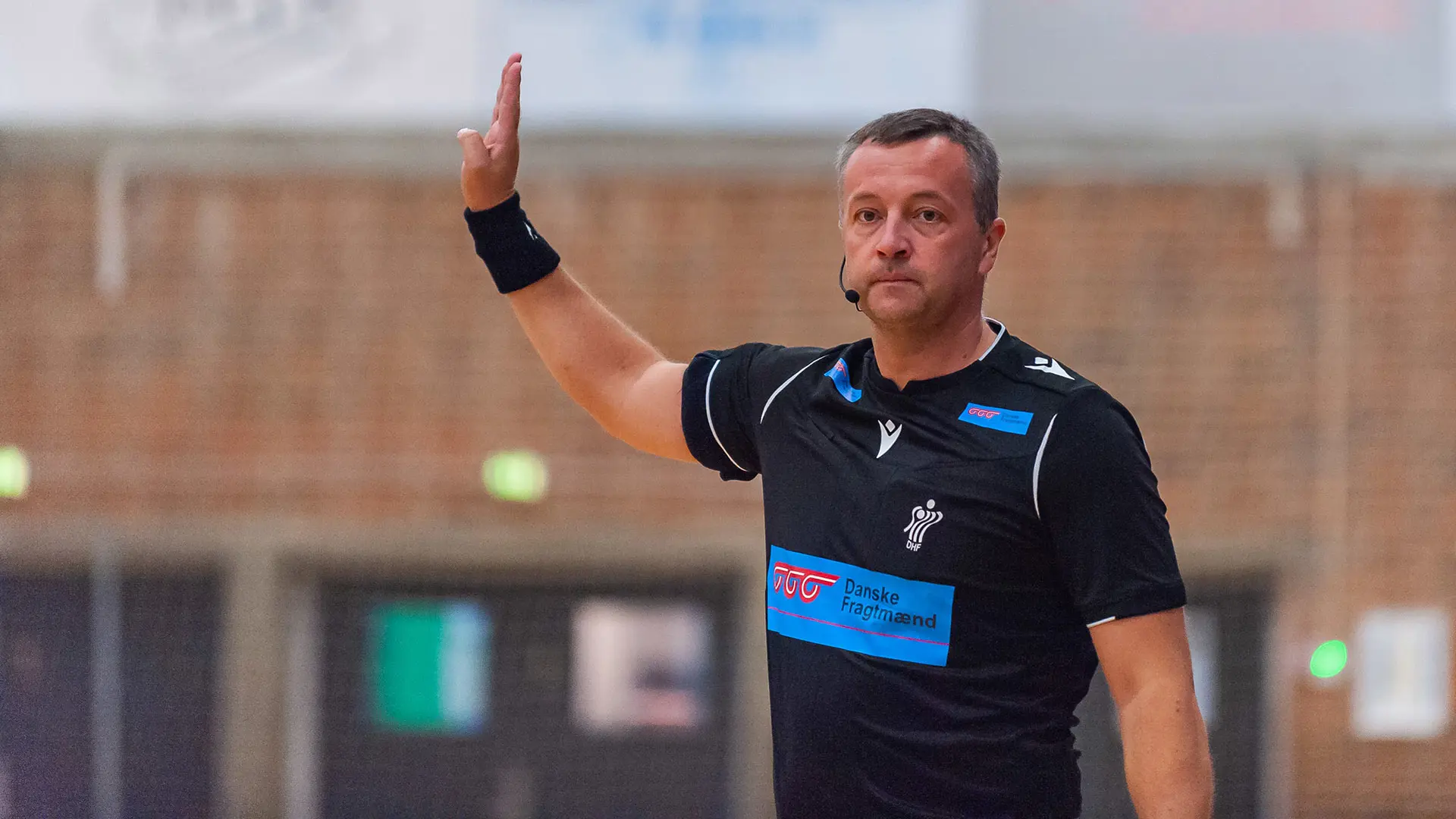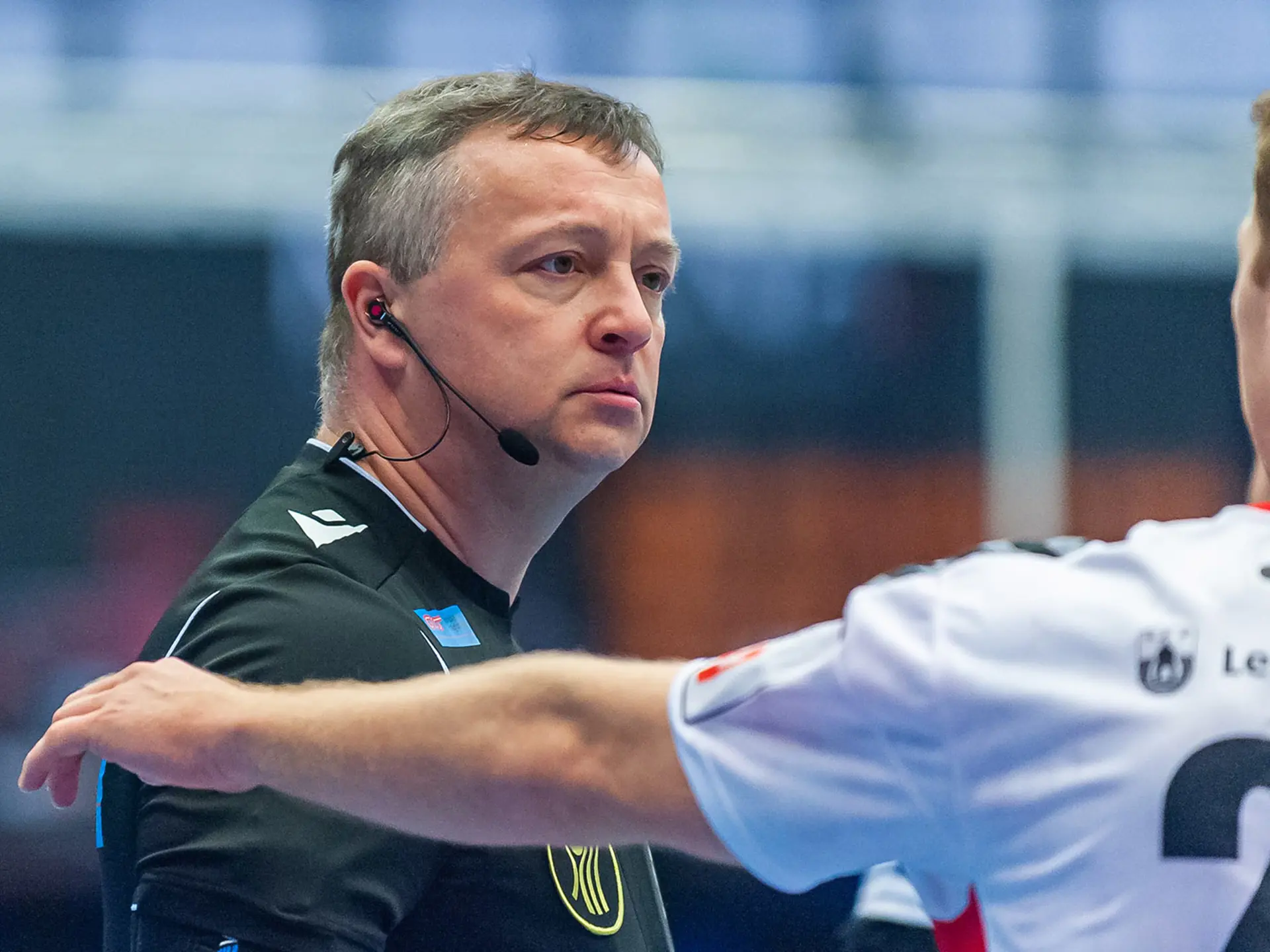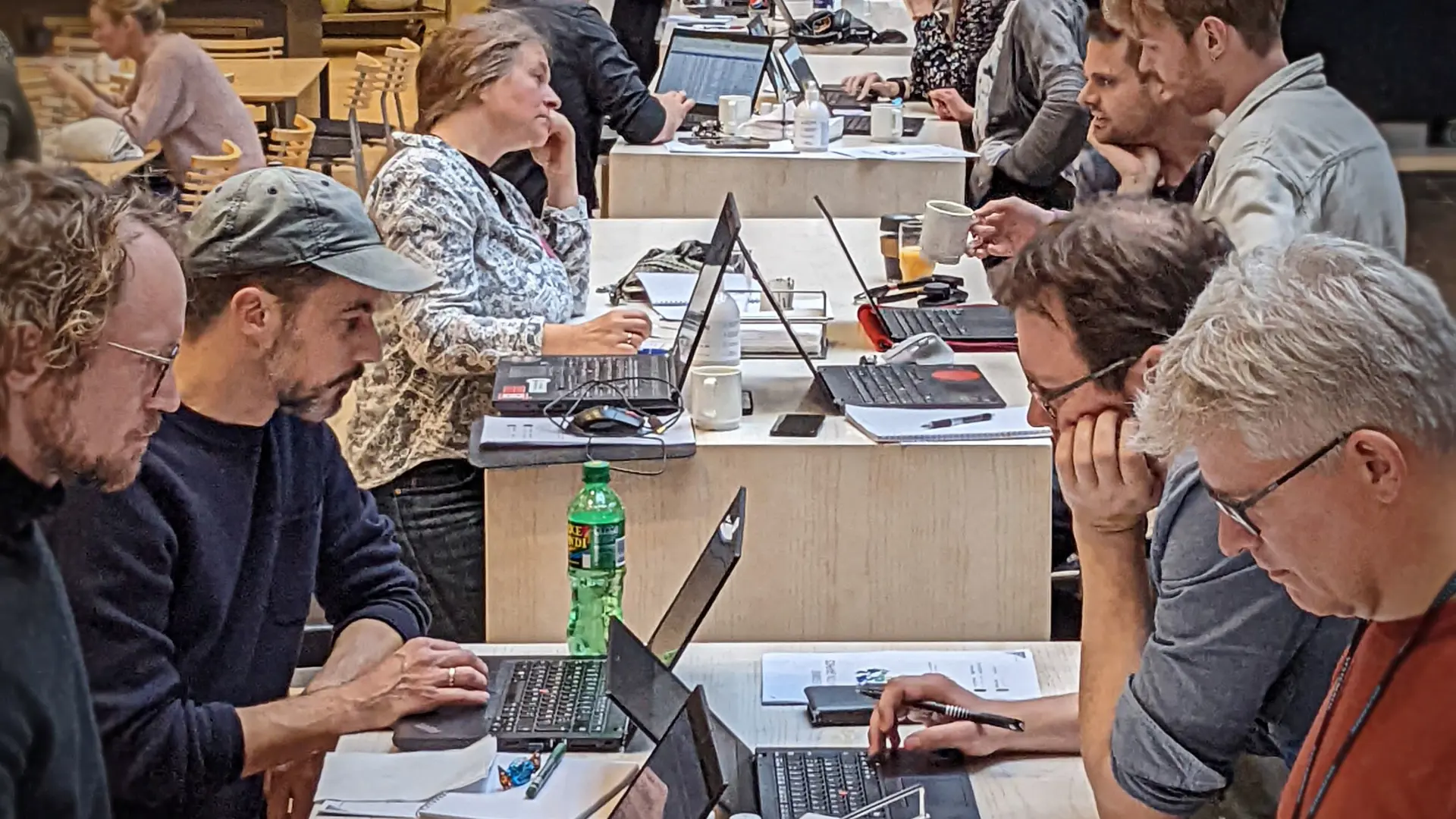Handball data hones the performance of Danish elite referees
The Danish national coaching group for handball referees is switching from impressions to facts, using data to ensure more consistent decision-making in Danish and international elite handball. The referee coach and former elite referee Martin Gjeding sees huge potential for data analysis in the world of sport.
During the 2022 European Men’s Handball Championship, the Danish TV station TV2 tested Systematic’s new business intelligence solution, which enabled commentators in the stand to spice up their coverage with accurate and sometimes surprising statistics and facts about the teams, players and results. Now, the Danish national coaching group for handball referees has become aware of the possibilities and started to use the analysis tool.
The solution gathers relevant data from handball matches from national handball leagues, the Champions League, the World Championships and the Olympics. The data is displayed in clear graphs, tables and percentages, allowing the referees to see how they perform over time and compared to each other.
Focus on more consistent judgements
The Danish national coaching group, which works to develop elite referees in Danish handball, are the first referees to be given access to the solution’s data analyses. They have selected three parameters where they want to see improvements: The number of decisions, the number of red cards and the number of penalties awarded per match.
“The data which is collected by Systematic’s solution provides us with a starting point for being able to understand where we need to focus our efforts in order to achieve our goal of creating more consistent refereeing in Danish and international handball. It is far better than basing one’s efforts on gut feelings,” says Martin Gjeding, one of three coaches in the national coaching group. He has also distinguished himself as an elite referee in handball matches at European Championship, World Cup and Olympic level.

Data comparison reveals differences
The main focus of the coaches is that elite referees must have a common understanding of when to decide on what – the so-called standard situations.
Ideally, all the referee pairs should referee roughly the same. After all, it wouldn’t work if the outcome of a match depended in part on which referee pair were refereeing the game,” says Martin Gjeding.
The aim, therefore, is to achieve more consistent decision-making among the referee group, and with Systematic’s data solution, referees are now able to compare their decisions with other other referees. Armed with statistics from a wide range of matches, coaches can also look beyond narrowly focusing on single matches to having a more nuanced view of the referees’ performance.
Larger data sets allow us to follow the development of the referees over a period of time in order to be able to assess whether their performance is moving in a positive direction. The aggregated figures also shed more light on which long-term trends one should be aware of,” explains Peter Bredsdorff-Larsen, national coach for the Faroe Islands’ men’s national handball team and also a member of the Danish national coaching group.
Working with data creates tangible results
According to Martin Gjeding, the Danish elite referees have made great strides since the national coaching group embraced Systematic’s data solution as an analysis tool in its work.
The aim is to harmonise the performance of the elite referees, and Systematic’s data solution made it clear for us which areas needed addressing. The solution showed, for example, that the referee pair that awards the most penalty shots on average decides 120% more penalty shots per match than the referee pair that awards the fewest.
Of course, there may be differences between the individual matches, but over numerous matches, the average should be about the same for all referees,” says Martin Gjeding.
Huge potential in sports data
The Danish national coaching team brought together the two referee pairs and arrived at a common understanding of when to award penalty shots. Now, the difference between the number of penalty shots awarded has been reduced from 120% to just 20%. A definite improvement, according to Martin Gjeding.
If you ask Martin Gjeding, this is just the tip of the iceberg in terms of the potential that lies in working with data analyses in sport.
“This is just the beginning. And the sky is almost the limit in terms of how we can use data in sport,” says the elite referee.
Moreover, the potential is not limited to handball referees. During the European Men’s Handball Championship last winter, Danes could see how TV2 used the data solution to enhance its coverage for viewers with statistics and comparisons between teams and players.
Solveig Dissing, senior project manager in Systematic’s Business Intelligence & Data Science department, also expects players, clubs and agents to be able to use the solution to optimise performance, among other things. In the long term, other sports can also benefit from Systematic’s analysis and visualisation tool.







